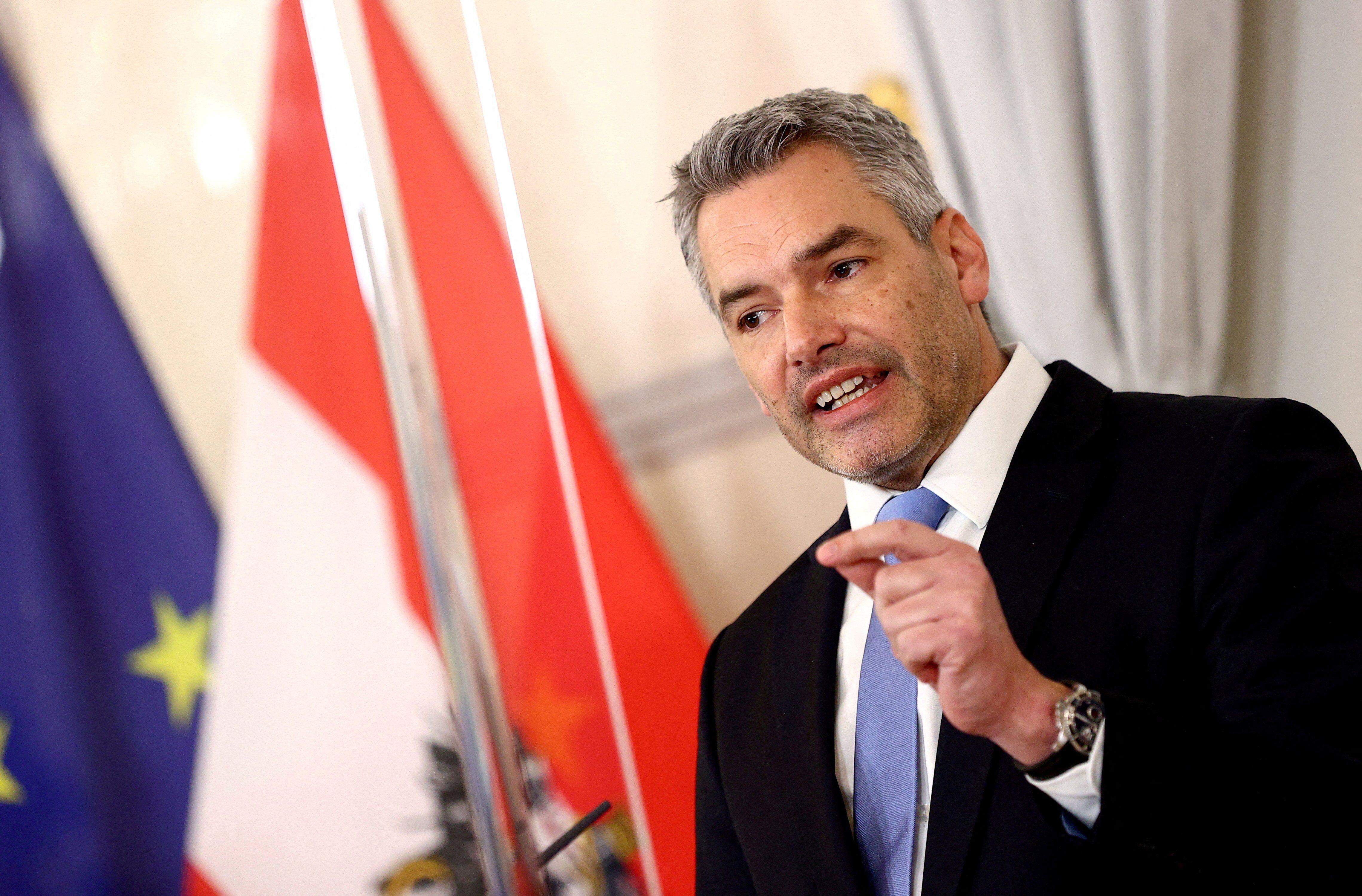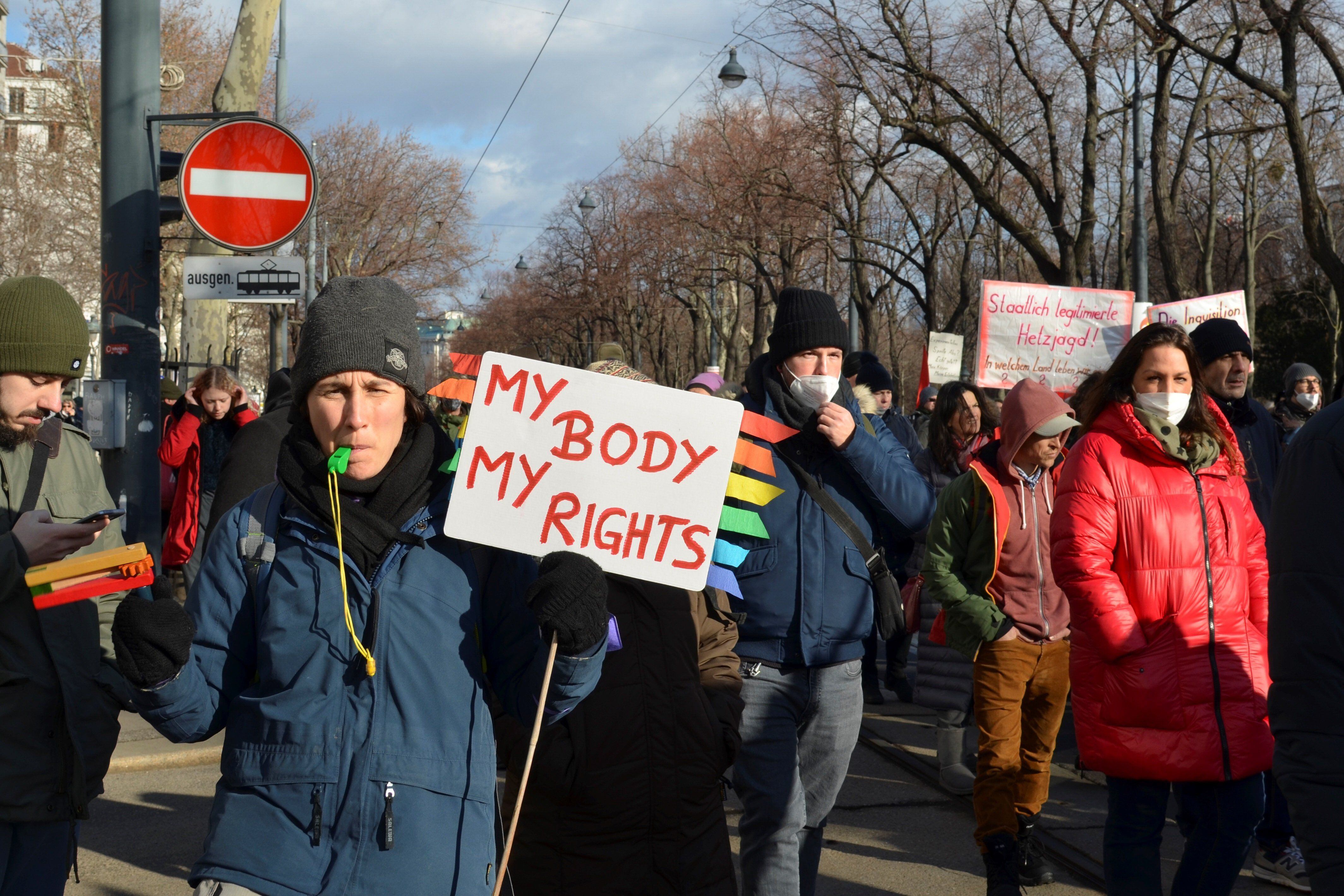This Thursday the 20th the Parliament of Austria ruled that vaccination against coronavirus It will be mandatory for adults over 18 years of age, making the Central European country the first in the Old Continent to provide this for such a large group of people. Meanwhile in Argentina, a bill has just been introduced to do the same.
READ ALSO: The drama of a woman who lost the cartilage in her nose due to a poorly performed PCR and now needs surgery
In both countries, of course, the situation is totally different and, therefore, their ways of getting the population to be vaccinated are also different.
In this article we put the magnifying glass on how they cope with the COVID-19 pandemic and the impact of the omicron variant in both countries, as well as the measures proposed to stop it.
- Austria registers its highest number of daily coronavirus infections since the pandemic began
- Austria declares that the health certificates with the Johnson & Johnson vaccine are invalid
- Josef Fritzl, one of Europe’s most infamous criminals, could soon be released
Argentina: author of the project speaks
According to La Nación, until December 15 of last year, more than 68 million doses had been applied, and more than 37 million were of the first guideline.
That means, to date and according to data from Our World In Data, that there are 34 million people vaccinated, which represents the 74.8% of the population.
Regarding the positive cases, yesterday it was “reported 120,982” as well as “189 deaths and 112,392 recovered patients”.
In that context, until recently, it was not necessary to present the vaccination card to be able to enter restaurants, cafes and other businesses. The situation will change shortly.
And if the official deputy Juan Carlos Alderete presented the project to make the vaccine compulsory was, among other reasons, due to the appearance of omicron.
Alderete tells El Comercio:
“We know that it causes millions of infections in the world, that it is more contagious than measles. In addition, everything indicates that the pandemic is still far from over and future mutations that may be more dangerous than those we already know are not ruled out.”.
“Nobody can argue that the vaccine has saved and will continue to save lives. And this is not said by me, but by experts and scientists from all over the world”.
“We do this for citizens and thinking about the future, when this ceases to be a pandemic and becomes endemic.”.
What Alderete proposes with the bill is to include the vaccine against coronavirus inside of the National Vaccine Schedule, which would make it mandatory and offered free of charge throughout the country.
It is a matter, says the deputy, of following the same path that was taken many years ago with other diseases, such as measles o la tuberculosis.
“When these became endemic, the only way to control them was by including vaccines in the calendar”.
Alderete says that the intention of this proposal is not to argue or enter into political issues, and that, if it is necessary to withdraw it, he will do so. But that the project seeks to help citizens.
“We are not discussing the level of vaccination in the country, which is high. The problem is when it goes from pandemic to endemic and if it is not on the calendar, people can stop getting vaccinated”.
About the discussion of compulsory nature and freedoms?
“Here there is a social health problem that leads to death, and that is above any other right”.
“Our Constitution clearly establishes it: collective law is superior to personal”.
But it must be taken into account that the Alderete project does not take into account penalties.
“Of the type of Ecuador, not like Austria that does contemplate them”.
And about the changes that are coming in the day to day of Argentines? Will the vaccination card be presented to enter certain businesses?
“There are some provinces that have joined, others that have not. It is very confusing. Starting this coming week, in the province of Buenos Aires it will be mandatory, otherwise it will not be possible to enter restaurants or cafes”.
“Before it was a mess, no one asked for anything. And they are saying that medium and long-distance public transport is also going to be requested”.
READ ALSO: Heat wave in Argentina: reporter faints during a live broadcast
Austria: drastic measures
According to Our World In Data, 17.2 million doses have been administered in Austria, which means that there are 6.68 million people fully vaccinated, that is, 74.9% of the total population, although in other versions it is considered to be the 71%.
The figures are not negligible, but they are not enough.
“As planned, we are going to make vaccination compulsory from the beginning of February.”, declared the canciller Karl Nehammer.
The idea is that, after a white march, controls begin to be carried out in mid-March and those who comment on the crime if they are not vaccinated, sanctions will be applied, such as payment between “600 and 3,600 euros”.
In response, over the weekend, nearly 27,000 people protested against the project that has just been approved in Parliament.
The result was expected. According to Deutsche Welle, the government had a “wide” majority.
“In addition to conservatives and environmentalists, the leaders of the Social Democratic and Liberal parties support the text. Only the extreme right opposes”, writes the medium.
According to the Diario de Sevilla, the rule establishes “that all residents over the age of 18 ‘are required to undergo vaccination against covid-19’ under the argument of ‘protection of public health’”.
“According to the latest polls, only 45% of Austrians support the entry into force of compulsory vaccination”, adds the portal.
In this regard, the Italian analyst Francesco Tucci remember that this path has also traveled Italy and that everything points to “France is interested in introducing the same rule”.
With that in mind, it is valid to observe how the Italian population reacted to the rule.
“As you know, in Italy the rule was approved that says that those over 50 have to be vaccinated or they will be fined”.
“Clearly, in Austria, a similar measure is going to arouse resistance from anti-vaccines. Beware: this measure may not be good to convince them to get vaccinated”.
Tucci notes that in Italy very few have obeyed the rule, even though the deadline to do so is February 1. In that sense, so far, the measure has not worked there.
“It would be more opportune, instead of doing that, to explain well to the population the side effects, the benefits that vaccination can bring. And also say what can happen if one does not”.
“In the Italian case, not enough has been reported. That is why the anti-vaccine movement has developed so much. That is thanks to the incompetence of public communication”.
According France 24, Austria must convince one and a half million people.
And it doesn’t matter if they have to organize lotteries among those vaccinated that award 500 euros, or offer economic aid packages to municipalities with higher rates of vaccinations.
Or if the unvaccinated have to be quarantined, as happened in November of last year.
“I hope that in Austria the same thing does not happen as in Italy,” says Tucci.
Is it possible that, at some point, the countries of Europe will begin to force their citizens to be vaccinated? “It is not a trend yet, but it could be if vaccination campaigns stall.”, concludes Tucci.
- Johann Biacsics, the well-known Austrian anti-vaccine who wanted to cure himself with bleach, dies of coronavirus
- Heat wave in Argentina: why did the Sun look orange last Friday the 14th?
- Argentina registers the highest number of coronavirus infections of the entire pandemic
- The shocking moment when two Argentine police officers save a baby who could not breathe
- Massive blackouts in Argentina and the heat wave looms at 42 degrees

:quality(75)/cloudfront-us-east-1.images.arcpublishing.com/elcomercio/YYVTW7MXUZD77LQPXX5DD77ZNU.JPG)




:quality(75)/cloudfront-us-east-1.images.arcpublishing.com/elcomercio/DIWZTVLACFFLBBFI6UIVNLWKMA.jpg)
:quality(75)/cloudfront-us-east-1.images.arcpublishing.com/elcomercio/QB4EKPAJRNFB7JRBBRPJQNWNE4.jpg)
:quality(75)/cloudfront-us-east-1.images.arcpublishing.com/elcomercio/B3NQD5KCQNASBKCQBPS55KEHSI.jpg)

